Backpedalling: Are Automakers Bringing Back Physical Buttons?
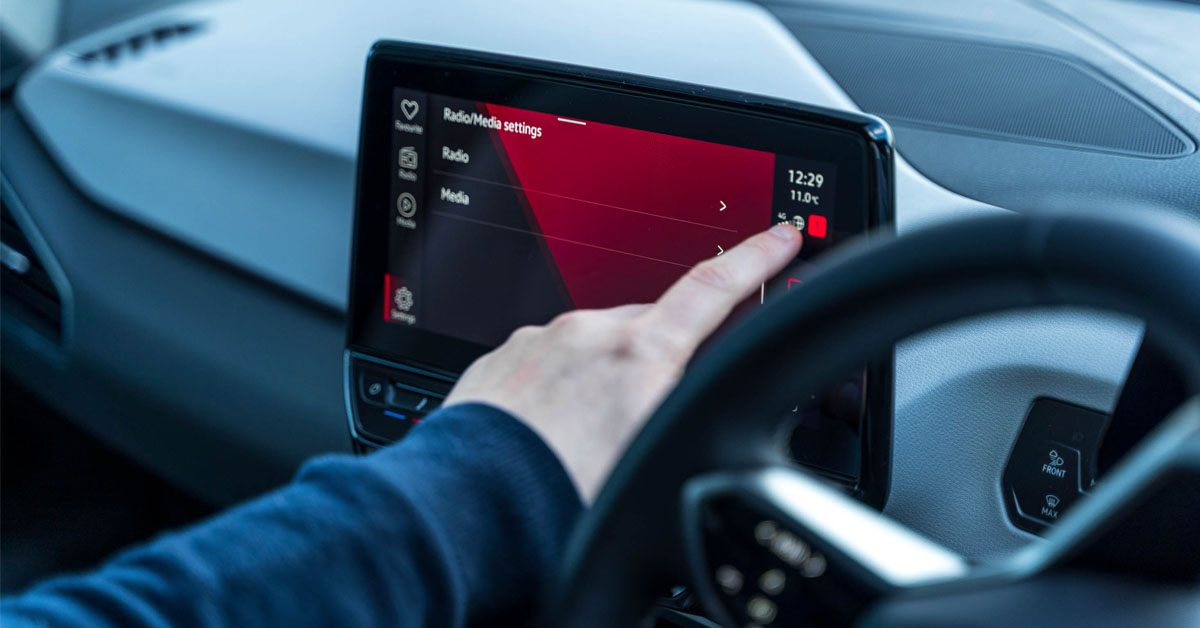
Like them or not, touchscreens in cars have been a controversial focus ever since Tesla stuck in a tablet and called it a day. Are automakers backtracking now?
I don't like touchscreens in cars and I don't like haptic feedback buttons. That's just my opinion though, as plenty of people at Stable don't mind them or even love them. I dislike having to take my eyes off the road to mess around with the A/C controls, it's dangerous and not intuitive. The most recent Golf Mk8 touchscreen was extremely fiddly to me, even once I knew how it worked it still took a while to turn things on and off.
While this is only my personal view, it's shared by a fair amount of car enthusiasts who prefer physical buttons. Those who want the latest and greatest tech, such as big proponents of Tesla, prefer the touchscreen. And to be honest, the Tesla touchscreens and operating system are wicked fast so it's understandable. Tesla has loaned Stable several cars to play with in the past and I never had any issues with them.
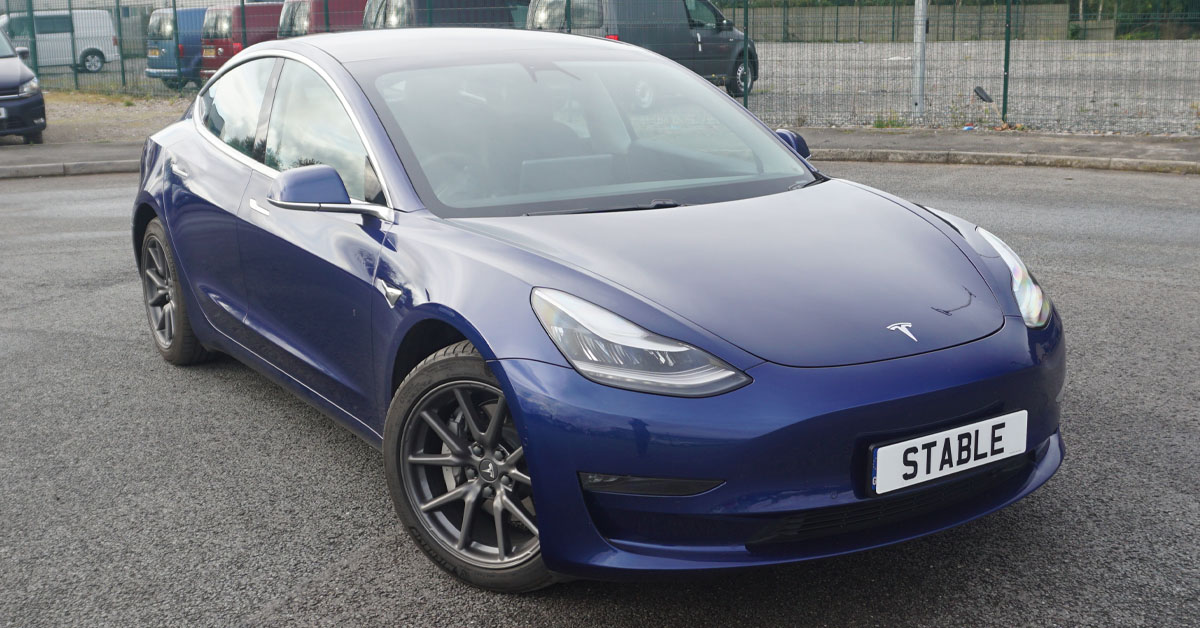
During the pandemic, road traffic fatalities in the US reached an all-new high, with the National Highway Traffic Safety Administration (NHTSA) figures showing an estimated 42,915 deaths in car crashes in 2021. This was an increase of 10.5% compared to 2020 which had 38,824 road traffic deaths.
Websites GHSA and CyclingWeekly also came out with articles showing that pedestrian and cyclist deaths from car accidents have hit a 40-year high recently.
Of course, it would be difficult to blame our veering eyes stuck on the slow and laggy touchscreens that have caused the increase in road traffic deaths across the board. Driving in general after the pandemic seems to have gotten worse, perhaps due to the fact we were stuck inside our houses for nearly a year without any practice.
Car sizes have also increased across the board these days, with most manufacturers opting to discontinue their smaller cars in favour of SUVs and CUVs. A good example of this is Ford closing down sales for their insanely popular Ford Fiesta and Focus hatchbacks. Pedestrians and cyclists have less chance of survival when a 2-tonne SUV/CUV hurtles toward you, as opposed to a 1.3-tonne hatchback.
The rise of the touchscreen
For the past 15 years, the rise of displays and touchscreens has gained strength. Touchscreens aren't anything new in cars. Back in the 1980s, the Buick Riviera had a basic touchscreen display known as the 'Graphic Control Center'. It hosted a couple of functions for the car such as air conditioning and heating.
Ever since then displays and touchscreens slowly crept into our vehicles. Tesla was a massive pioneer of the touchscreen. Back in 2008, they released their first production car, the Roadster. At the time it didn't have a touchscreen until the July 2010 update (and it was an optional extra). In the same year, Tesla started production of the Model S, which was the first Tesla to have virtually everything caked into a giant central touchscreen.
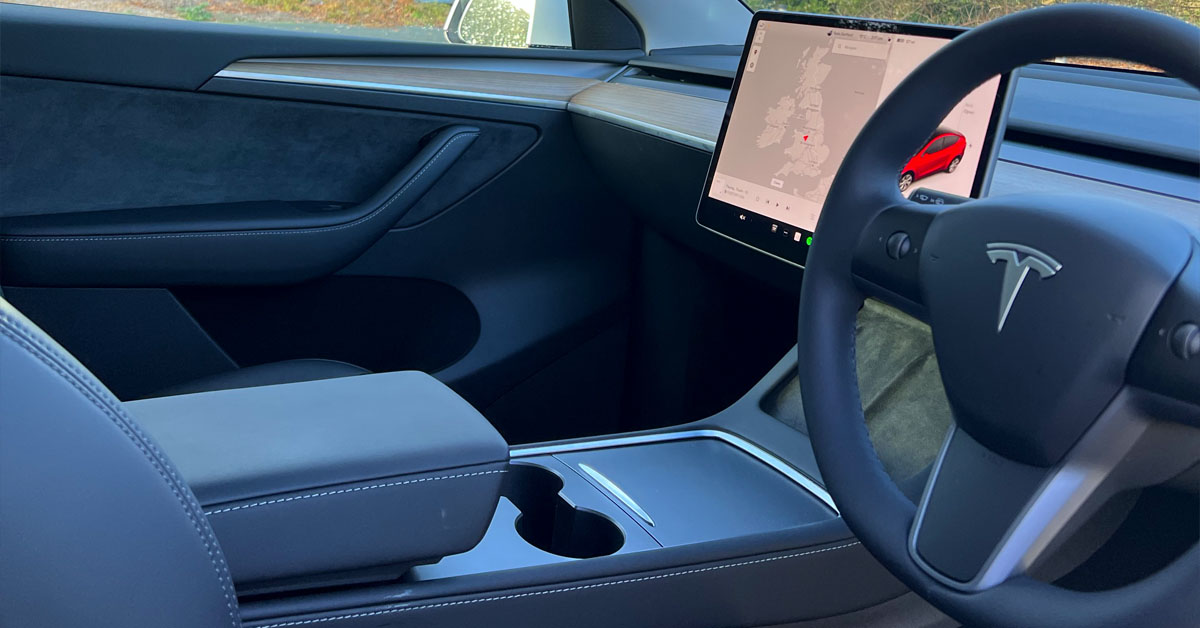
The touchscreen revolution came about when Tesla started production of the more affordable Model 3 saloon back in 2017. This was the first highly-sold Tesla model, with them marketing the car as an "affordable EV for the masses". Since June 2021 the Model 3 has sold over 1 million units.
The Model 3 came with a 15.4-inch touchscreen as standard. And if you can remember back then, everyone and their dog were plastering social media with videos of them playing video games or watching Netflix in their Tesla.
The automakers were all watching. They saw the rise of products like Apple's iPads and Tesla's infotainment system. The people wanted new technology and "cool" features in their cars. And now you have virtually every single car manufacturer has some form of touchscreen in their vehicles.
It's ended in companies such as Mercedes bragging about the size of their touchscreens. With the Mercedes EQS having the world's first 'Hyperscreen', which was a gigantic piece of glass that stretched across the entire dashboard section, giving the users inside three different screens to look at. After all, bigger is better, right?
Touchscreens are solving problems that don't exist
Did you ever have any issues switching on features inside your physical buttoned car? I don't know how anyone would struggle to switch on the A/C with the spin of a simple toggle. I can do it with my eyes closed inside my own car. I also have a window demisting feature that can be activated at the push of a switch. As well as a volume adjust spin toggle that is effortless.
These particular physical switches require zero effort and don't require me to take my eyes off the road. It's all muscle memory. I know where the switches are. And even if I didn't, looking away for 1 second to press a switch is surely better than spending 30 seconds messing with a touchscreen.
So why do we need touchscreens again? What issue are they solving that was an issue before?
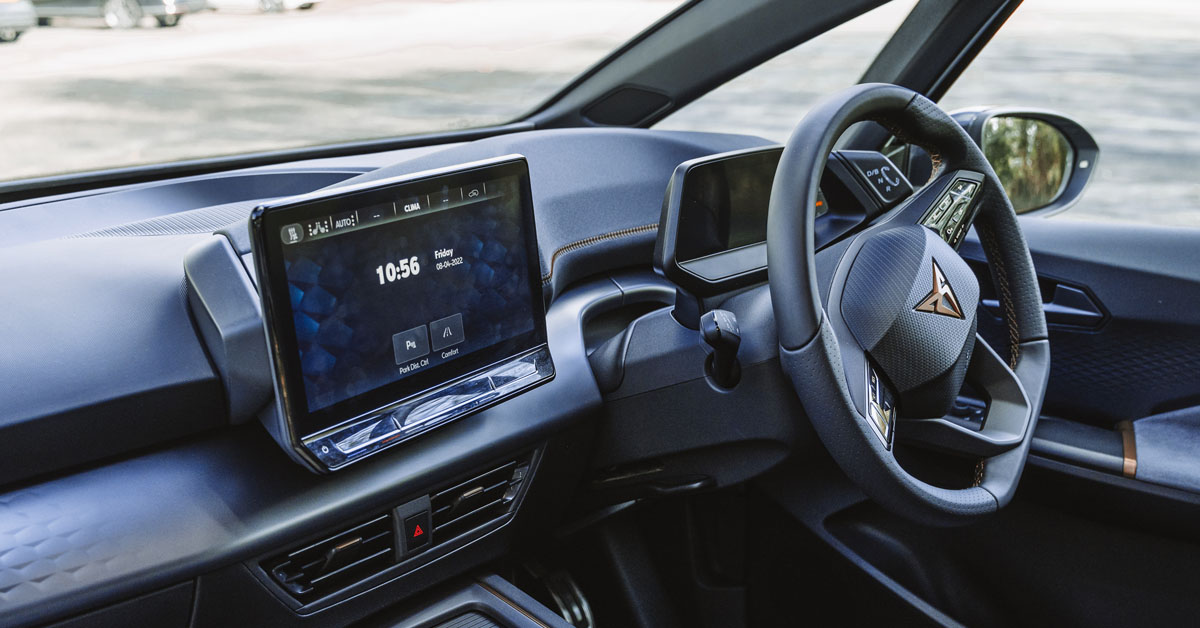
In 2022 a New York Times piece by Jay Caspian wrote:
"I can think of no better way of describing the frustration of the modern consumer than buying a car with a feature that makes you less safe, doesn’t improve your driving experience in any meaningful way, saves the manufacturer money and gets sold to you as some necessary advance in connectivity."
The laws don't make sense
In the UK if you're caught on your mobile phone while driving you get 6 penalty points and a £200 fine, as per the gov.uk website. That's understandable, as mobile phones are a massive leading cause of road traffic accidents.
But then why doesn't this law apply to touchscreens? What is the difference between looking at a mobile phone for 10 seconds, as opposed to spending 10 seconds faffing around with your iPad touchscreen trying to get your A/C to work? In both situations, your eyes aren't focused on the road and both will cause accidents to happen.
A study by the AAA Foundation came to the conclusion that infotainment touchscreens can distract drivers for up to 40 seconds, enough for a driver to cover half a mile at 50 mph.
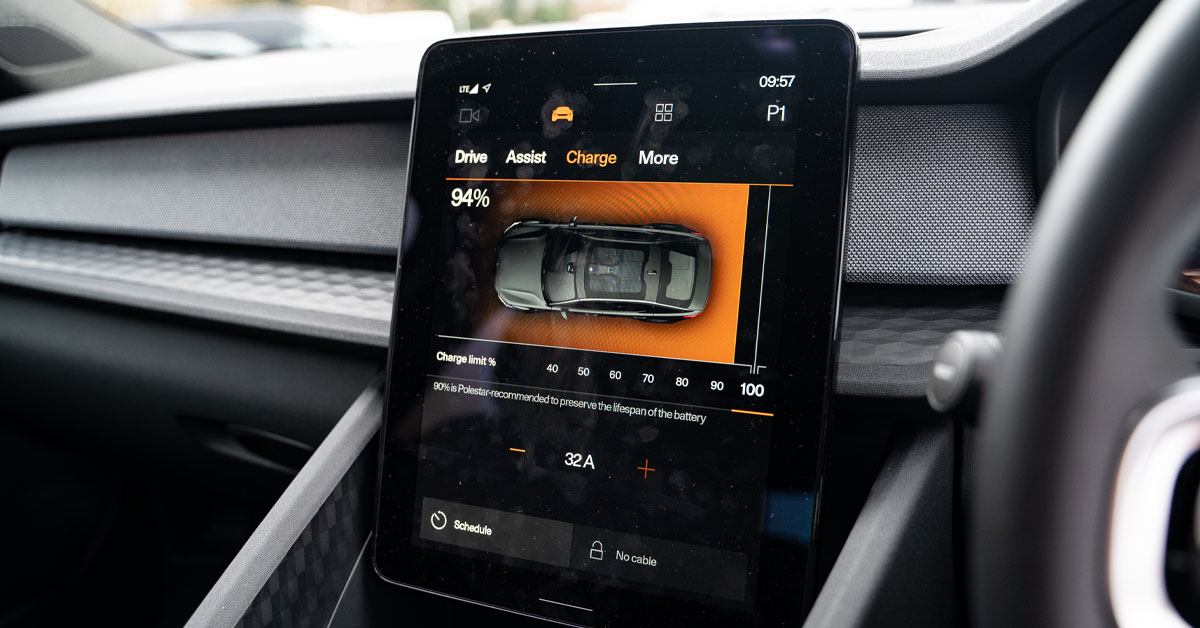
The laws need some time to catch up because they simply don't make sense right now. It feels like the government is simply ignoring the issue, as any law that promotes banning touchscreens would harm UK car sales. Or perhaps they are actively looking into the situation but laws do take a long time to be put into place.
Have automakers noticed our concerns?
Yes and no. Some have and others haven't. Some never even started adding them like luxury supercar maker Bugatti.
One of the main issues of physical buttons is the higher cost for automakers. If they want to produce vehicles on a specific budget then manufacturing them all with the exact same touchscreens is cheaper overall for them.
So it's no surprise certain upmarket manufacturers like Porsche are bringing back buttons on some of their models, like the 2024 Cayenne SUV. Porsche, which is owned by Volkswagen, has decided to reverse course with touchscreens, going as far as to say the upcoming ID.7 EV will be the last EV with haptic touch controls and a touchscreen.
After numerous customers complained about the touch-sensitive haptic steering wheel buttons, Volkswagen is removing them and adding back normal physical buttons.
If anything, this is a good sign as Volkswagen is one of the world's largest automobile manufacturers. Nissan’s senior VP for global design, Alfonso Albaisa told the website GreenCarReports "I think people are going to get tired of these big black screens".
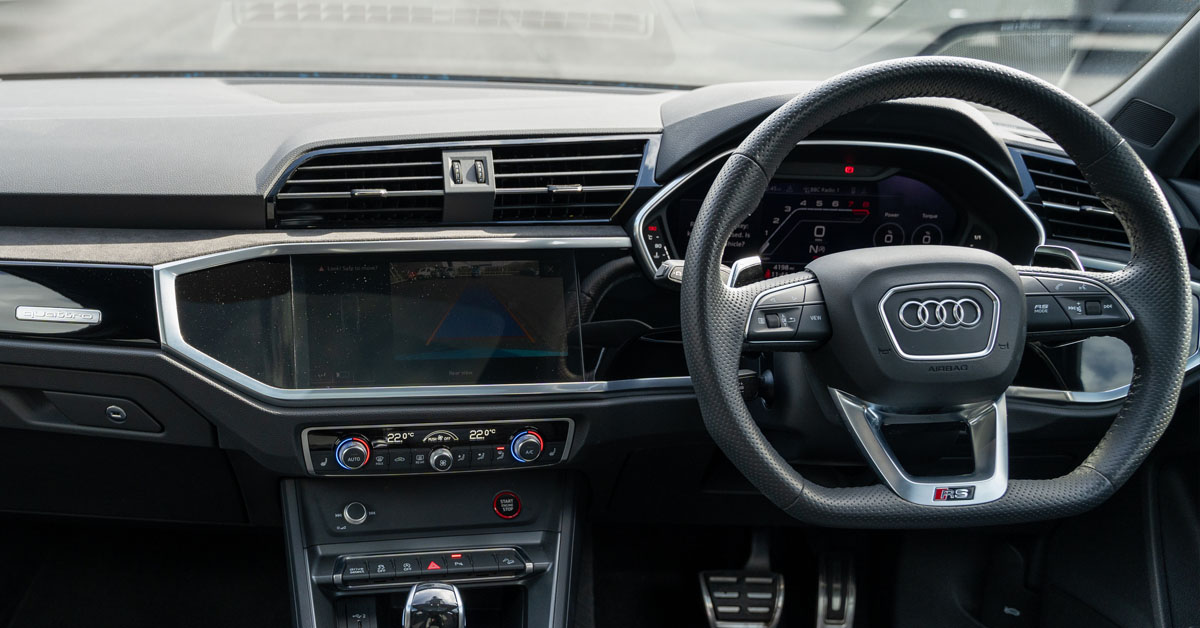
Hyundai's head of design, Sang Yup Lee recently said "We have used the physical buttons quite significantly the last few years. For me, the safety-related buttons have to be a hard key" in an article on CarsGuide.
Some brands are staying the course, predicting the future to be all screens. Manufacturers like Mercedes are doubling down on their commitments, with the 2024 Mercedes E-Class having the aforementioned hyperscreen, which is three touchscreens extending across the whole dashboard.
In a particularly negative announcement, General Motors recently said that all their future models will be incompatible with Apple CarPlay and Android Auto. This means that you are forced to use their infotainment system, even if it's unintuitive and sloppy to use. This is not customer friendly at all.
Regardless, it's still good to see Volkswagen, Nissan and Hyundai and Porsche reversing course with touchscreen technology.
My final thoughts
I am not against touchscreens in cars.
I think they would make excellent additions to the driving experience but only when parked up and in a safe location. Who doesn't want to watch Netflix or play a video game while waiting for someone? You could even plug a PS5 games console into the Honda's little Honda e EV. Tesla's external microphone technology and the fact you can have a romantic log-burning fire on the central screen are extremely fun.
A combination of physical buttons for ease of access during driving and a touchscreen for everything else would be perfect. Voice activation of features would also be good if it was perfected to a point where it was easy. Most EVs already have excellent voice activation features. The closer we can get to keeping our eyes on the road and not focusing on touchscreens is a worthy target for automakers.
Perhaps one day touchscreens will make sense once everyone is flying around in self-driving vehicles. But for now, while we're still controlling them ourselves, it makes no sense to have features in cars that force our eyes off the road.
Established in 2009, Stable Vehicle Contracts is a UK-based premium vehicle leasing company. We are part of a large, privately owned, Volkswagen and Audi dealership group with over 25 sites. Stable Vehicle Contracts has the ability to offer the very best car and commercial vehicle lease deals and thanks to our partners in the trade, we've become leaders in the supply of cars and commercial vehicles through leasing.
Give us a call today at 0151 728 4711 or visit our Special Offers page to see what deals we have on. Alternatively, signup for our leasing offers newsletter to get our latest deals delivered straight to your inbox.